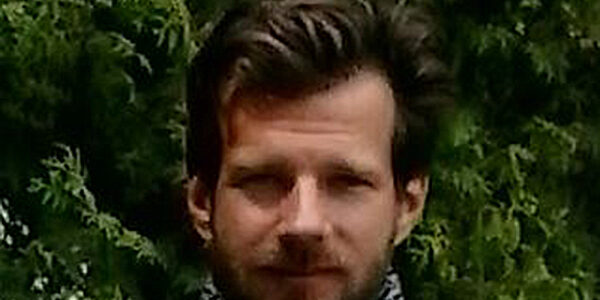
Maroš Krivý‘s (Head of the Urban Studies Department) research examines urbanism from historical and contemporary perspectives, and is situated at the intersections of urban political economy/ecology and architectural history. There are three overlapping strands of his research:
1. platform urbanism, cybernetics and systems thinking
- Krivy, M. (forthcoming): “The Unbearable Lightness of ‘Complexity’,” Perspecta 53: Onus
- Krivy, M. (forthcoming): “Platform Urbanism and Knowledge-Power,” in M. Hodson et al. (Eds.), Urban Platforms and the Future City: Transformations in Infrastructure, Governance, Knowledge, and Everyday Life (London: Routledge)
- Krivy, M. (2018): “Towards a Critique of Cybernetic Urbanism: The Smart City and the Society of Control,” Planning Theory 17, 1 (2018), 8–30
with S. Hochhäusl, T. Lange, et al., “Architecture and the Environment,” Architectural Histories 6, 1 (2018), 1–202. socialist urbanism and the housing question - Krivy, M. (2020): “Faceless Concrete Monsters, c. 1990,” in K. Cupers, H. Mattsson and C. Gabrielsson (Eds.), Neoliberalism on the Ground: Architecture and Transformation from the 1960s to the Present (Pittsburgh: University of Pittsburgh Press)
- Krivy, M. (2019): “Automation or Meaning? Socialism, Humanism and Cybernetics in Etarea,” Architectural Histories 7, 1, 1–17
- Krivy, M. (2019): “Humanizing the Living Environment and the Late Socialist Theory of Architecture,” in V. Kulić (Ed.), Second World Postmodernisms: Architecture and Society under Late Socialism, pp. 33–46 (London: Bloomsbury)
- Krivy, M. (2017): “Quality of Life or Life-In-Truth? A Late-Socialist Critique of Housing Estates in Czechoslovakia,” in Á. Moravánszky and T. Lange (Eds.), Re-Framing Identities. Architecture’s Turn to History, 1970-1990. East West Central. Re-Building Europe 1950-1990, Vol. 3, pp. 303–318 (Basel: Birkhäuser)3. political economy/ecology of urban regeneration
- Krivy, M. (2020) “Tracing the Urban Pastoral in Tallinn: Leo Marx, Karl Marx, and Urban Political Aesthetics,” in M. Gandy and S. Jasper (Eds.), The Botanical City, pp. 243–252 (Berlin: Jovis)
- Krivy, M. (2019) “The Smart and the Ruined: Notes on the New Social Factory,” Thresholds 47, 75–90
- Krivy, M., Ma, L. (2018), “The Limits of the Livable City: From Homo Sapiens to Homo Cappuccino,” Avery Review 30
Keiti Kljavini (urbanistikaosakonna külalislektor) uurimustöö on ruumiga tegelevate valdkondade vaheline ja vastavalt koostöövormile ka erineva väljundiga. Fookus on pealinnast ja selle regioonist kaugemal, peamiselt planeeringuliselt ning strateegiliselt ebaühtlase arenguga linnalistes ja maalistes keskkondades. Teemadena on tähelepanu all kahanemine, eluaseme valdkond ja osalusplaneerimine. Nende tööde väljundid on olnud näiteks konsultatsioonid, sekkumised linnaruumis, ruumikavad ja visiooniplaneerimine, ruumiandmete põhised uuringud, erinevad osalus- ja koosloome projektid, sündmused jms. Kõikide nende urbanistika praktiliste ettevõtmiste eesmärk on kasvatada ja sisustada võimalikku linnalise keskkonna teoreetilist mõtestamist ning siduda õppetegevusse reaalsed osapooled, olukorrad ning aktuaalsed kohalikud väljakutsed, seda siis nii praktikas kui teoorias.
Näited 2019-2020 aastal:
- Rahandusministeeriumi “Kahaneva rahvastikuga piirkondades probleemsete korterelamute elanike ümberasustamine ja kasutusest väljalangenud korterelamute lammutamine” juhendmaterjalide koostamine ja Kohtla-Järve eluaseme valdkonna pilootprojekti läbiviimine (Linnalabor
- „Europeanisation Through Repair“ (Tartu Ülikool)
- Naissaare arengukava 2019-2029 (Linnalabor)
- Antsla ruumikava (2019, Linnalabor)
- Narva taju-uuring (2019, koostöös SPIN Unitiga)
